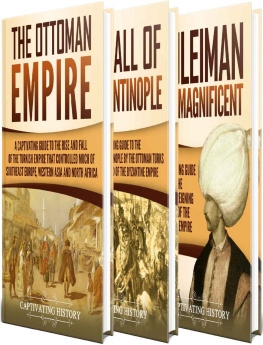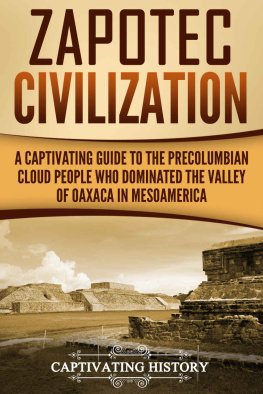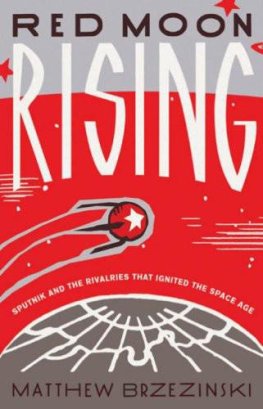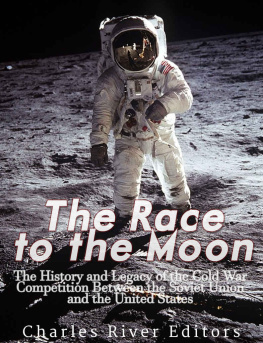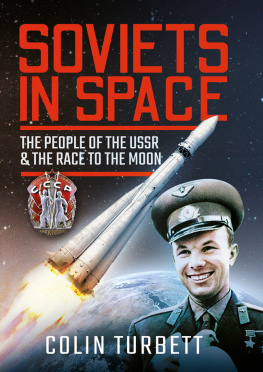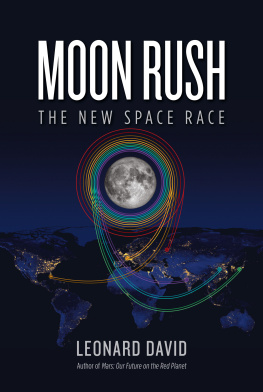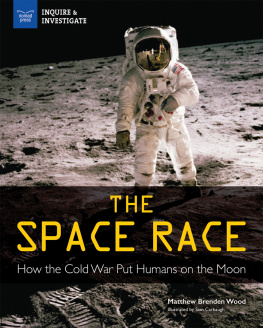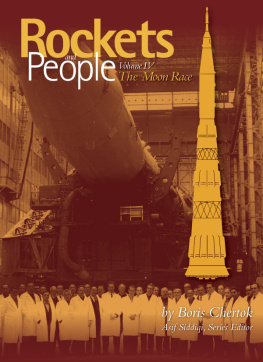The Space Race
A Captivating Guide to the Cold War Competition Between the United States and Soviet Union to Reach the Moon
Copyright 2020
All Rights Reserved. No part of this book may be reproduced in any form without permission in writing from the author. Reviewers may quote brief passages in reviews.
Disclaimer: No part of this publication may be reproduced or transmitted in any form or by any means, mechanical or electronic, including photocopying or recording, or by any information storage and retrieval system, or transmitted by email without permission in writing from the publisher.
While all attempts have been made to verify the information provided in this publication, neither the author nor the publisher assumes any responsibility for errors, omissions or contrary interpretations of the subject matter herein.
This book is for entertainment purposes only. The views expressed are those of the author alone, and should not be taken as expert instruction or commands. The reader is responsible for his or her own actions.
Adherence to all applicable laws and regulations, including international, federal, state and local laws governing professional licensing, business practices, advertising and all other aspects of doing business in the US, Canada, UK or any other jurisdiction is the sole responsibility of the purchaser or reader.
Neither the author nor the publisher assumes any responsibility or liability whatsoever on the behalf of the purchaser or reader of these materials. Any perceived slight of any individual or organization is purely unintentional.
Free Bonus from Captivating History: History Ebook
Hi History Lovers!
My name is Matt Clayton, and Im the creator of Captivating History. First off, I want to THANK YOU for reading our books in the Captivating History series. As an avid reader of History myself, I aim to produce books that will hold you captive.
Now you have a chance to join our exclusive history list so you can get the ebook below for free as well as discounts and a potential to get more history books for free! Simply click the link below to join.
P.S. If you join now, you will also receive a free Mythology book. Remember that its 100% free to join the list.
Click here to access your bonus
Also, make sure to follow us on:
Twitter: @Captivhistory
Facebook: Captivating History: @captivatinghistory
Youtube: Captivating History
Table of Contents
Introduction
The Cold War is usually thought of in terms of fear, potential nuclear war, and espionage. While these were elements of the years between the end of World War II and the 1990s, the competition between the US and the USSR had some real benefits. Perhaps the best and most impressive accomplishments during this time resulted from the Space Race.
The Space Race was not something either side set out to win. Initially, the US and USSR were only interested in becoming militarily superior to each other. This competition started by accepting and overlooking the atrocities that the German scientists had enacted on their fellow men during World War II. The best German scientists were given another chance by both nations and many other countries. There is even a joke about this time that depicts the two sides bragging that their German scientists were better than the others. The next few years revealed just why these scientists were often absorbed into other nations instead of standing trial with other Nazis.
Following the end of World War II, many nations fought to bring the German scientistsespecially the German engineershome to their countries. The scientists had been a major factor in the Germans long-term success, and, ultimately, the US and the USSR ensured that the scientists were more evenly divided between the two superpowers. The USSR did not benefit from absorbing German scientists as much as the US because they already had a very adept and knowledgeable primary scientist who had been researching the possibilities of space most of his adult lifeSergei Korolev. The US made more use of their German scientists and the input of others from around the world. While one country worked in secret, the other was far more open. The USs desire to be transparent to help other nations understand what it was doing was the catalyst for the start of the Space Race. Since the USSR could see what the US was doing, it decided to show its superiority through successful firsts in space.
Within two decades of the end of World War II, the two superpowers engaged in a completely different competition. The second half of the 1950s and all the 1960s became a period in which humanity finally did what it had been dreaming of doing for millennia: going into space. When the USSR successfully launched Sputnik in 1957, the US realized it was not nearly as far ahead in the Space Race as anticipated. For much of the next decade, the USSR was consistently first in the race to get into space. It successfully sent the first person into space, then the first woman into space, and was the first to orbit the globe. It was even the first to land an artificial device on the moon in 1959. With the pressure on, the US began to focus more on space travel. The USSR had been first to reach the moon (as well as send the first life, including two tortoises, to the moon and back), but the US National Aeronautics and Space Administration (NASA) became the first agency to successfully send humans into the moons orbit in 1968.
Then, in 1969, the US managed to do what was thought impossible just two decades earlier: it landed a man on the moon and successfully returned him to Earth. Forty years later, no other nations have managed to land a person on the moon.
Following this major success, the Space Race began to die down, and the two superpowers started focusing their attention and efforts elsewhere. Other problems were creating issues that were impossible to ignore back on Earth, and with the major first goals accomplished, it seemed like there wasnt much else to do. The Space Race had all but ended at this point, and it took decades before there was any further significant progress made in space travel. Many at the end of the 1960s could see humans reaching and colonizing Mars within the next fifty years. However, this was not to be the case. It was several decades before anyone even attempted to send orbiters to Mars.
With the crumbling of the USSR and the division of the superpower into several individual nations during the 1990s, the USSR was no longer able to participate in the Space Race. Instead of continuing to push each other through competition, the US and Russia began to work together. Attempts to explore space slowed down but never fully stopped. During the early part of the 21 st century, many other nations began to look toward space to see what they could do. By 2020, there was a new Space Race, with several nations trying to achieve what the US and USSR had achieved several decades earlier. This new Space Race has helped revive an interest in space travel on a different level: some private companies have begun to realize their agency to accomplish something that previously was only possible through an entire nations efforts.
Chapter 1 The End of World War II, the Fate of German Scientists, and the Future of an Unassuming Ukrainian
Even before World War II began, German scientists had a reputation for their innovation and ability to solve problems. They provided the Germans with a real military advantage through the weapons they devised, including nerve and disease agents. They used psychological warfare to lower the morale of the Allies. When the Allies finally defeated the Nazis and trekked through Germany and the regions the Nazis had occupied, the Allied countries were shocked by the kinds of weapons the scientists had been creating. From a weaponized form of the bubonic plague to other inventions the Allies had not even considered developing, it quickly became apparent to the military leaders that they bringing the inventive German scientists back to their respective countries would give them a distinct advantage. This was particularly true for two emerging superpowers in the post-World War II world: the US and the USSR. The tense friendship that had been maintained during the war ended when it became clear the Nazis had been defeated. Neither side trusted the other, and without an enemy to unify them, the US and USSR began to square off, each promoting its own ideas about what was the best form of governance. In reality, the problem ran much deeper.



